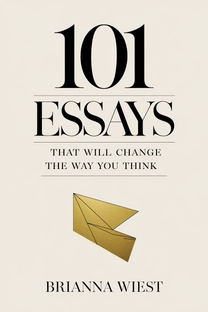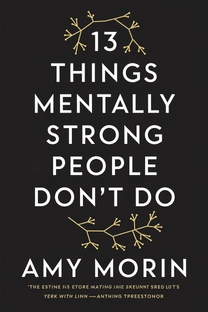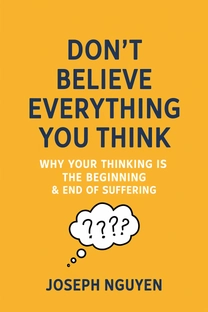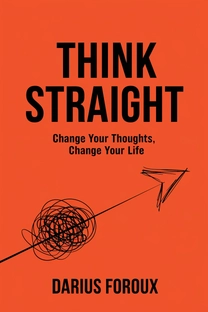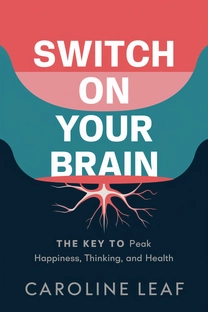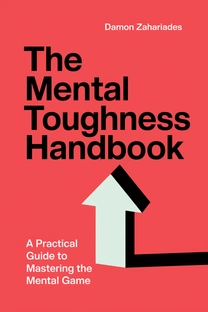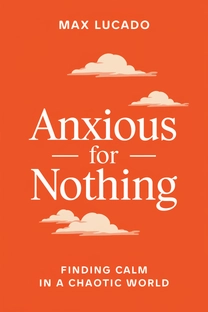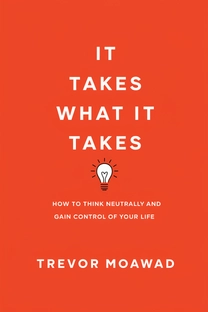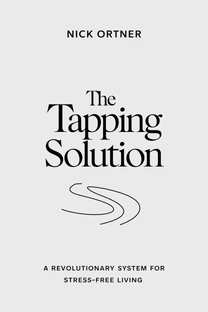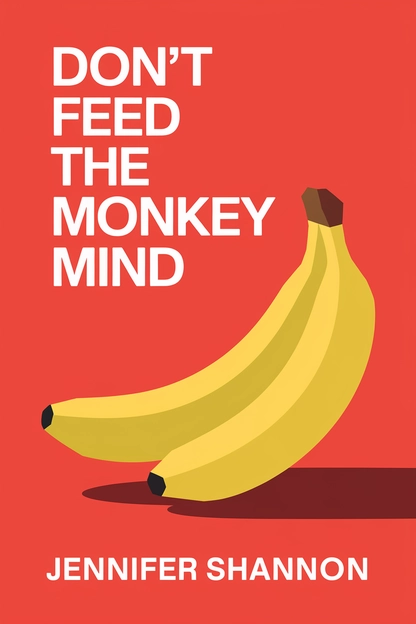
Don’t Feed the Monkey Mind
by Jennifer Shannon
Brief overview
This book is about how anxious thoughts can hold you hostage and details practical strategies to overcome the repetitive cycle of worry and fear. By exploring the hidden triggers behind anxious thinking, you’ll discover clear steps to break old habits and create a calmer, more flexible mindset. Expect to gain insights that help you act in ways that energize you, rather than exhaust you.
Introduction
Welcome to a world where anxious thoughts can feel like an unruly monkey swinging from branch to branch, never giving you a moment of peace. If you’ve struggled with worry and stress, you know this monkey’s chatter all too well. It may tell you stories of disaster lurking around every corner, or warn you constantly about being judged and found lacking.
The key idea here is that by feeding these worries—giving in to them, double-checking, or constantly trying to push them away—you’re actually making your anxiety stronger. Despite good intentions, the coping mechanisms you’ve used might be the very reason you feel so stuck in a loop of fear and constant mental noise.
The goal of this summary is to help you understand why anxiety shows up, how your mind interprets threats, and what you can do to free yourself from repetitive or paralyzing worries. You’ll discover strategies that are simple yet powerful, designed for everyday life. The idea is to gently train that monkey in your head so it’s no longer leading you around.
In the pages ahead, you’ll learn about the hidden triggers that spark your anxious mind, explore the notion of an 'expansive mindset' that encourages healthy risk-taking, and master practical exercises so you feel more in control. Let’s begin by understanding what happens in your brain when anxiety takes over.
The Fire Alarm in Your Brain
Deep within your brain sits a system designed to keep you safe. It’s like an ultra-sensitive fire alarm that goes off at the faintest scent of smoke. The moment it perceives potential danger—real or imagined—it sounds the alarm, firing up your fight-or-flight response. This was essential when our ancestors faced predators, but in modern times it often misfires, causing us to feel threatened in daily situations where no real danger exists.
When this alarm is triggered, your body floods with stress hormones, your heart rate rises, and your mind zooms in on every worst-case scenario. This is partly why anxious thoughts feel so urgent. It’s your brain doing what it evolved to do: keep you safe at all costs.
The trouble is that this protective mechanism isn’t particularly good at distinguishing between a life-threatening situation and a temporary discomfort—like an awkward conversation or a routine medical test. That’s why you might find yourself paralyzed by fear or seizing on every bit of ‘what if’ news, even though the danger is minimal.
Simply recognizing that your brain’s 'alarm system' can overestimate threats is the first step. By noticing when the alarm sounds unnecessarily, you’ll begin to loosen fear’s grip. In doing so, you start to train that alarm to be more accurate rather than hijacking your peace of mind.
What is Don’t Feed the Monkey Mind about?
Don’t Feed the Monkey Mind by Jennifer Shannon is an insightful exploration into the mechanics of anxious thinking. The author dismantles the complex web of anxiety, offering readers a clear pathway to break free from repetitive worry cycles. Through the lens of relatable anecdotes and practical strategies, Shannon assists readers in identifying hidden triggers and promotes the development of a calmer, more adaptable mindset.
This book provides more than just a temporary relief from anxiety; it equips individuals with the tools to reconfigure their perspective on fear and stress. By introducing exercises focused on transforming habitual responses and fostering an "expansive mindset," Shannon presents a compelling case for adopting new behaviors that invigorate rather than deplete energy levels. Readers learn how to harness insights that empower rather than enervate them.
What makes Don’t Feed the Monkey Mind particularly impactful is its emphasis on personal agency. By acknowledging that anxiety can often misread potential threats, the book paves the way for readers to regain control over their thoughts and actions. It's a valuable resource for anyone looking to vanquish chronic worry and reclaim peace of mind.
Review of Don’t Feed the Monkey Mind
Jennifer Shannon's Don’t Feed the Monkey Mind stands out with its accessible and relatable approach to anxiety management. At its core, the book is a blend of heartwarming anecdotes and science-backed tips designed to challenge the patterns that perpetuate anxiety. One of its greatest strengths is the practicality with which strategies are presented, allowing readers to seamlessly incorporate them into daily routines. With a clear focus on breaking habitual responses and cultivating an "expansive mindset," it enhances readers' capacity to react constructively to stress.
The writing is light and engaging, steering clear of jargon, making it approachable to a wide audience. What Shannon delivers is a guiding hand through the storm of anxiety, rather than a prescriptive manual. The steps outlined are straightforward; they encourage readers to act rather than remain trapped in cycles of avoidance and fear. The actionable exercises not only offer relief but foster resilience and confidence, vital attributes for navigating life's uncertainties.
Don’t Feed the Monkey Mind is recommended for anyone who finds themselves frequently ensnared by worry. The book does not promise a miraculous end to anxiety but instead empowers readers to skillfully manage it. With Shannon's guidance, the reader learns to embrace unpredictability, encourage positive self-dialogue, and gradually disempower the negative chatter of the "monkey mind." This transformative resource is essential for those seeking a pragmatic and compassionate roadmap to a more serene existence.
Who should read Don’t Feed the Monkey Mind?
- **Mental Health Professionals**: Offering robust insights into anxiety management, this book can serve as an additional tool for therapists, counselors, and psychologists looking to enhance their approach.
- **Individuals with Anxiety**: Anyone experiencing persistent anxious thoughts will find relatable anecdotes and useful strategies to alter their habitual responses.
- **Self-Improvement Enthusiasts**: Those interested in personal development and the psychology of behavior change will benefit from learning how the 'monkey mind' influences actions.
- **Teachers and Educators**: Educators can leverage the book’s strategies to better understand and support students grappling with anxiety issues in academic settings.
- **Parents of Anxious Children**: Parents raising children with anxiety will gain valuable insights and practical approaches to help their kids navigate their fears effectively.
About the author
Book summaries like Don’t Feed the Monkey Mind
Why readers love Mindleap
10-Minute Book Insights
Get the core ideas from the world's best books in just 10 minutes of reading or listening.
Curated For You
Discover your next favorite book with personalized recommendations based on your interests.
AI Book ExpertNew
Chat with our AI to help find the best book for you and your goals.
Reviews of MindLeap
Love how I can get the key ideas from books in just 15 minutes! Perfect for my busy schedule and helps me decide which books to read in full.
Alex R.
The summaries are incredibly well-written and the audio feature is perfect for my commute. Such a time-saver!
Jessica M.
Great app for personal growth. The insights are clear and actionable, and I love how they capture the essence of each book.
Chris P.
The app is beautifully designed and the summaries are top-notch. Definitely worth every penny!
Sarah K.




